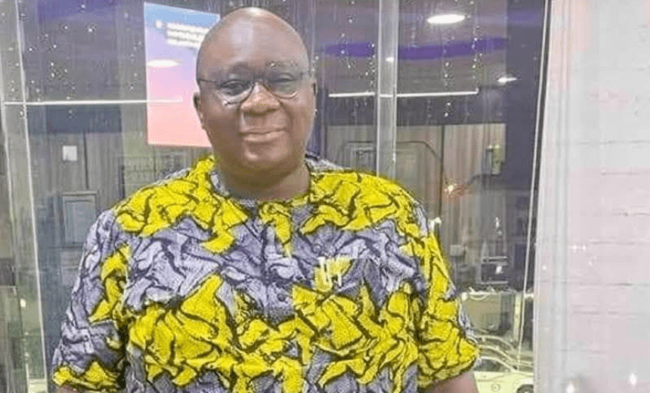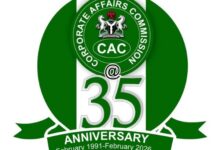Sextortion Scandal Rocks Benue State: Why EFCC Arrested Gov. Alia’s Aide, Makor Aondona

In a case that underscores the deepening intersection of power, technology, and abuse, Nigeria’s Economic and Financial Crimes Commission (EFCC) has arrested Dr. Makor Aondona, a Special Adviser to Benue State Governor Hyacinth Alia, over shocking allegations of sexual exploitation, cyberbullying, and blackmail.
The arrest was confirmed on Saturday by EFCC spokesperson, Mr. Dele Oyewale, who said Aondona was taken into custody on Friday by operatives from the Commission’s Makurdi Zonal Directorate following detailed petitions from multiple female students. The victims alleged that the governor’s aide used his official position to coerce young women into sexual acts under the pretense of offering them ushering jobs—only to be secretly recorded and later blackmailed with the footage.
“The suspect allegedly targeted slim and attractive young women, lured them into sexual relationships, recorded the encounters without consent, and subsequently used the footage to threaten continued sexual access,” Oyewale stated.
According to the EFCC, some of the explicit videos are now circulating across digital platforms, raising questions not just about privacy violations but also the broader vulnerability of young women in politically connected spaces.
Abuse of Power Meets Cybercrime
Dr. Makor Aondona, whose portfolio includes documentation, research, and planning for the Benue State government, allegedly weaponised his position to construct a façade of legitimate employment opportunities. Behind the scenes, however, investigators believe he maintained a predatory system of sexual manipulation and digital surveillance—a tactic increasingly emerging in Nigeria’s growing cybercrime landscape.
While sextortion cases often involve anonymous online actors, the EFCC’s findings suggest a troubling evolution: state officials now implicated in cyber-enabled sexual violence, blurring the lines between offline power abuse and online exploitation.
Legal experts say the case could become a litmus test for how Nigeria’s criminal justice system handles politically linked cybercrime and sexual abuse cases. Aondona is expected to be formally arraigned in the coming days.
Not an Isolated Case: EFCC’s Track Record in Sextortion Prosecutions
The case against Aondona adds to a disturbing trend of cyber-enabled sexual exploitation being tracked and prosecuted by Nigeria’s financial crimes agency. In September 2023, the EFCC arraigned one Olukeye Olalekan at the Federal High Court in Lagos for allegedly creating and distributing child pornography via Instagram. The arrest followed a tip-off from the Royal Canadian Mounted Police (RCMP), who linked Olalekan’s digital footprint to the tragic death of a 14-year-old girl in Canada.
Similarly, in August 2023, the EFCC facilitated the extradition of Nigerian brothers Samuel and Samson Ogoshi to the United States, where they faced federal charges of sexually extorting minors and young men across several states. The pair, indicted alongside a third accomplice, were said to have used sophisticated digital tactics to lure, record, and extort victims—a tactic that mirrors the allegations against Aondona, albeit now entangled with official state machinery.
“What we’re witnessing is the emergence of a darker hybrid of exploitation—where the tools of governance are misused to gain trust, and the tools of the internet are deployed to control, blackmail, and silence victims,” says cybercrime researcher and forensic analyst, Dr. Yemi Babalola.
Reputation Risk for Benue State and Alia Administration
The arrest of a top aide to Governor Alia casts a shadow over the administration’s ethical posture. While there has been no official statement from the Benue State Government at press time, political watchers believe the scandal may trigger broader scrutiny into internal hiring practices and the safeguarding of women in state-sponsored programs.
The implications for governance are severe: from potential legal liabilities and political fallout, to reputational damage that could hurt Benue’s public image, especially among donor agencies and civil society partners focused on gender rights and youth empowerment.
NEXT STEPS: Legal, Political, and Institutional Reckoning
Legal proceedings are expected to commence shortly, and public pressure is already mounting for a full-scale investigation into whether Dr. Aondona acted alone or as part of a broader network of predatory abuse. Meanwhile, gender advocacy groups are calling for the establishment of independent state-level sexual abuse hotlines and mandatory ethics vetting for political appointees.
The EFCC, for its part, says the arrest is part of a larger push to clamp down on emerging forms of exploitation that operate at the intersection of technology and influence.
“No one is above the law. Whether it is internet scammers or politically exposed persons, sextortion is a crime—and we will prosecute accordingly,” said a senior EFCC official, speaking on background.
BOTTOM LINE:
The arrest of Dr. Mkor Aondona is not just a criminal matter—it is a governance crisis and a cautionary tale about how unchecked power, digital surveillance, and institutional complicity can converge to harm the most vulnerable. As the case unfolds, it will test Nigeria’s resolve to hold the powerful accountable, online and offline.











